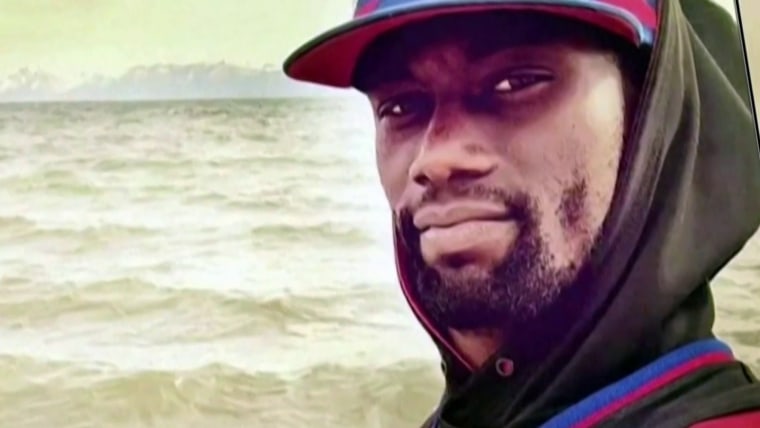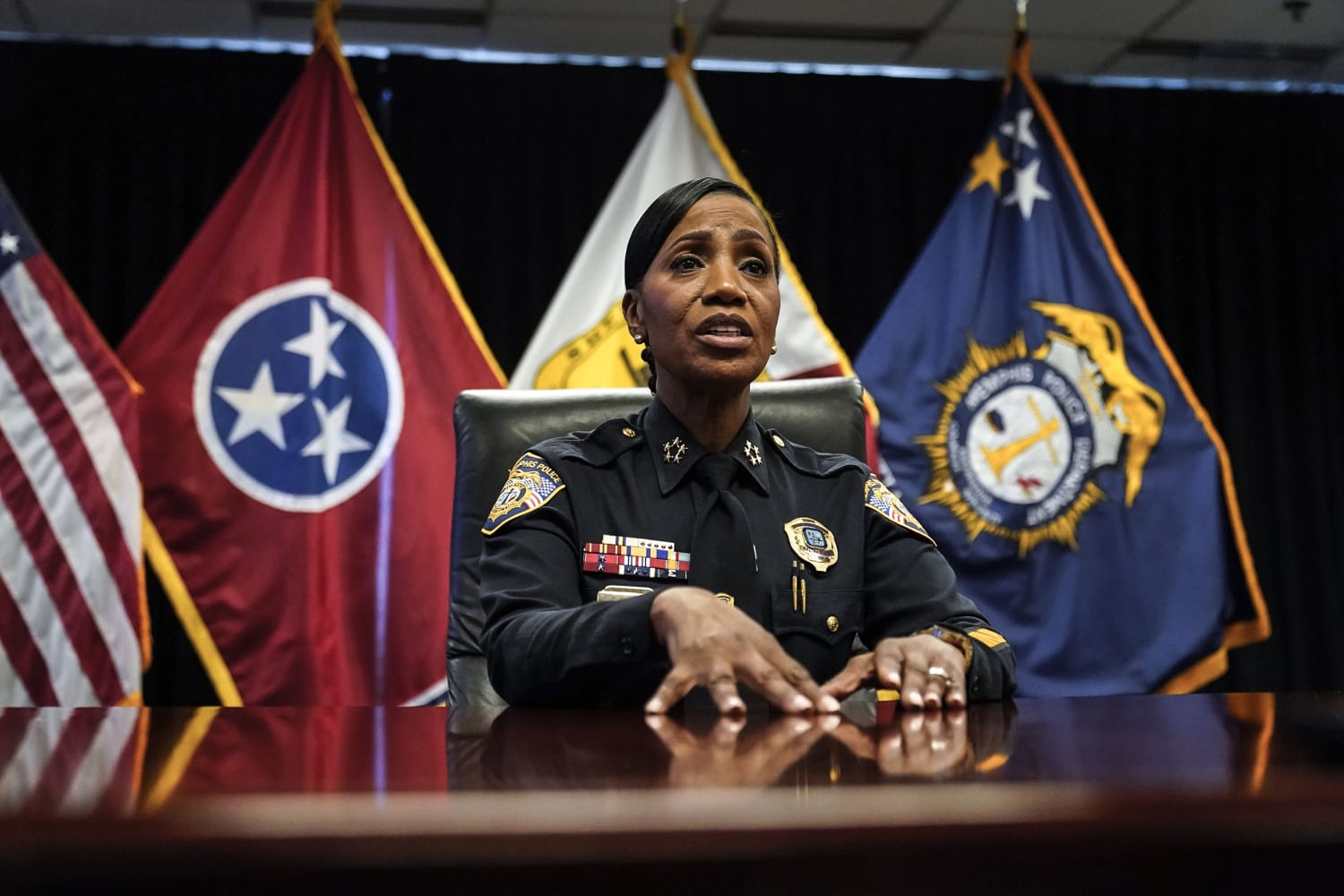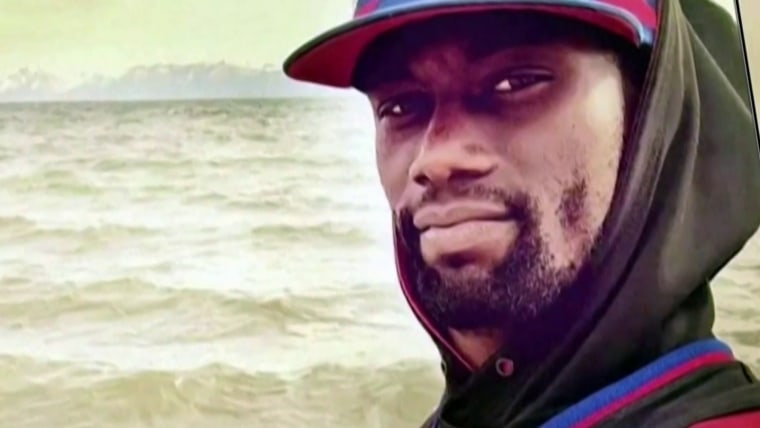As she rose through the ranks of the Atlanta police department, Cerelyn “C.J.” Davis spent nearly 18 months overseeing a hyper-aggressive street crime unit, named Red Dog, that was ultimately disbanded following a public backlash and a series of lawsuits.
Now, in the wake of Tyre Nichols’ death, Davis is facing questions over why she would launch a similar team in Memphis — called the Scorpion unit — shortly after she arrived to lead the city’s police force in 2021.
“If anyone in Memphis had checked with anyone from the world of police oversight in Atlanta, they would have learned that creating a Red Dog-like squad using Red Dog-like tactics was inevitably going to result in police misconduct and violence,” said Dan Grossman, an Atlanta lawyer who filed several successful lawsuits on behalf of victims alleging they were roughed up by Red Dog officers.
Nichols, 29, was savagely beaten by members of the Scorpion unit during a Jan. 7 traffic stop. He died three days later. Five officers have been charged with murder.
Davis arrived in Memphis as a trailblazer, the first Black woman to lead the police force in this majority-Black city and a vocal advocate for police reform who had testified before the U.S. Senate. Her actions in the wake of Nichols’ death, which included swiftly firing the five officers, initially drew praise.
But she’s now facing increasing scrutiny over not just the decision to launch the Scorpion unit in Memphis but also her earlier career in Atlanta, where she supervised the disgraced Red Dog unit in 2006 and 2007.
The unit had about 30 officers and a mission to flood areas of high crime in Atlanta with overwhelming force. Patrolling in groups of four or five, the officers were notorious for ambushing young men, yanking down their pants in public and performing full-body cavity searches in a hunt for drugs and an attempt to spread fear, according to a review of lawsuits, police officer affidavits and civilian review board memos, as well as interviews with plaintiffs’ lawyers and former Atlanta police oversight officials.
“Members of Red Dog were told to just get the job done, by whatever means,” Stalone Davis, who joined the Red Dog unit around 2007, in a 2012 court affidavit. He declined to comment for this article.
Over the years, Atlanta settled at least 10 lawsuits related to Red Dog unit misconduct, costing taxpayers more than $2 million in settlements, according to an NBC News review.
None of the lawsuits alleged misconduct that occurred during the time C.J. Davis oversaw the unit, but some longtime Atlanta residents said the Red Dog officers were using unrestrained tactics before, during and after her tenure.
“There was never a time that the Red Dog didn’t operate the way the Red Dog have always operated,” said Gerald Griggs, a civil rights attorney raised in Atlanta who now serves as president of the NAACP Atlanta chapter.
The unit was disbanded in 2011. Davis was still with the department, working as a community policing project manager, according to her résumé.
The Memphis Police Department’s Scorpion team had a similar mission to Atlanta’s Red Dog unit, drew similar complaints of excessive force and ultimately suffered the same fate — Davis shut Scorpion down last weekend.
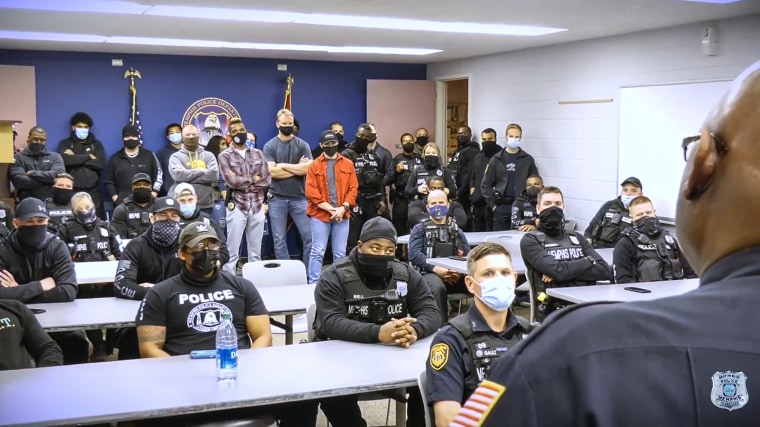
Cristina Beamud, executive director of the Atlanta Citizen Review Board from 2008 to 2011, said it should have been clear to Davis that a tactical unit like Scorpion was prone to violating people’s rights in Memphis just as Red Dog did in Atlanta.
Beamud said the board’s investigators found that Red Dog officers regularly conducted public strip searches at least as far back as 2007, when Davis was overseeing the unit.
“She knows what can go wrong,” Beamud said. “Everybody who is a student of policing in the U.S. knows what can go wrong.”
Since the 1980s, police departments across the country have launched street crime units in response to concerns about drugs and violence. Many were disbanded after they drew concerns about excessive force and contributed to a loss of public trust. But some cities, under pressure to deal with new crime spikes, have formed new street units in recent years.
In Memphis, Davis must now steer a police department in crisis, under an intense spotlight, as a fierce debate grips the city over whether she is the right person to tackle an entrenched violent crime problem and address deep concerns about the police force’s culture and tactics.
“She needs to do more if she wants to keep her job,” said Memphis City Councilman J.B. Smiley Jr. “She has to right the ship.”
Davis, the Memphis Police Department and the Atlanta Police Department did not respond to requests for comment.
Atlanta’s ‘Red Dog blitz’
Davis’ law enforcement career began in Atlanta, where she started as a patrol officer in 1986. She was one of only two women to graduate from the academy that year, according to a profile in the alumni magazine of her alma mater, Saint Leo University in central Florida.
Davis advanced through the ranks, landing the role of special operations section commander in June 2006, according to her résumé. In that position, she oversaw several units, including SWAT and narcotics in addition to the Red Dog team, according to her Memphis police bio.
While the Red Dog unit’s heavy-handed tactics would become a focus of scrutiny later, the real crisis of her tenure centered on the narcotics squad.
In November 2006, three officers fatally shot a 92-year-old woman in a botched drug raid, setting off protests and calls for police reforms. The family of the woman, Kathryn Johnston, filed a lawsuit against the city, which was settled for $4.9 million.
Davis was named in the lawsuit along with other police officials, who were collectively accused of engaging in a “pattern and practice of ignoring and violating the rights of the citizens of Georgia,” which led to Johnston’s killing.
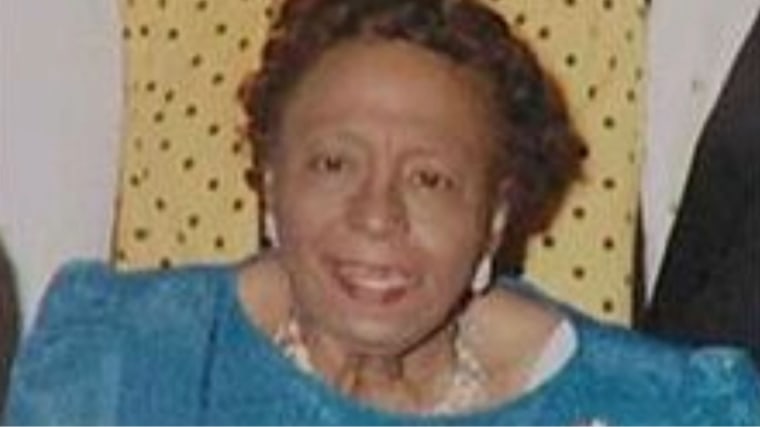
The city responded on behalf of Davis and the other high-ranking officials, saying they were protected by qualified immunity — a federal doctrine that shields officers from lawsuits related to their conduct.
The incident led to a major overhaul of the drug unit after prosecutors said that officers had regularly lied to obtain search warrants and planted drugs at crime scenes.
The Red Dog unit did not become the subject of lawsuits until years later.
The unit — whose name was drawn from “red dog blitz,” the play in football when several defensive players rush the quarterback — was formed in 1989. Its mission was to provide a “high profile and aggressive police presence in areas of the city that have a high incidence of street drug sales, drug use, and drug-related violent crimes,” according to a 2011 report by the city’s law department that cited a police policy document.
The Red Dog unit was disbanded in 2011 after the city agreed to pay more than $1 million to settle a federal lawsuit alleging that its officers used excessive force in a 2009 raid of a gay bar, the Atlanta Eagle.
Investigators found that officers barged in wearing black fatigues and shouted anti-gay slurs, threw patrons to the floor and handcuffed them while running background checks for criminal histories. The city argued that the officers had acted properly and had not violated the accusers’ rights.
After the unit was shuttered, several other men came forward to accuse Red Dog members of performing illegal searches.
Ricky J. Sampson recalled at least three encounters with the Red Dog unit: one around 2005 when he said officers pointed guns at him and his brother and searched his car, one in 2006 in which he said he was beaten beside his car, and another in 2010 in which he was strip-searched outside a shopping mall, leaving him shaken and scared.
He later sued over the 2010 strip search, which the city denied happened. The case was ultimately settled for $150,000.
Sampson, 38, said he knew the Red Dog unit growing up by the kind of car they drove — a blue cruiser marked as police but with no lights — the tactical clothing they wore, and how they traveled four-in-a-car.
He did not have any other way of identifying them. “I just know what the Red Dog is,” he said.
His lawyers were, however, able to link officers in the 2010 strip-search to the Red Dog unit.
“The Red Dogs changed my whole experience with police and made me really kind of cautious and nervous of them,” Sampson said in an interview this week. “I don’t trust them. When they snatch you and pull your pants down and search you, it messes with you. You have no rights.”
One former Red Dog member whom Sampson accused of taking part in the strip-search, Cayenne Mayes, later provided a declaration as part of Sampson’s legal case in which he described being pushed by commanders to perform strip-searches.
Conducting the searches “was a part of making our presence known — even when the searches did not discover anything,” Mayes said in the court declaration.
Mayes, who was a member of the unit from 2009 to 2011, also described supervisors’ imposing arrest quotas, first for drugs and guns, and later for just about anything that would boost arrest statistics.
He was fired in 2011 and could not be reached for comment.
Stalone Davis, the former Red Dog member who joined the unit around 2007, said in an affidavit in the Sampson case that veteran officers were replaced with younger, more aggressive ones in 2009. C.J. Davis had by then left her post overseeing the unit.
“Things got a bit too aggressive,” said Stalone Davis, who resigned in 2011.
After her time overseeing the Red Dog and narcotics units, Davis was transferred to the internal affairs unit in November 2007 and soon faced allegations that nearly ended her career. Davis was accused by other officers of trying to impede an investigation into a sergeant’s husband after the department obtained sexual photos of him with underage girls, according to The Atlanta Journal-Constitution.
She was demoted, and then fired, in 2008 following an investigation by the city’s law department. But she was rehired after she challenged her dismissal and the city’s Civil Service Board determined that the detectives had implicated supervisors to cover for themselves, according to The Journal-Constitution.
The husband ultimately pleaded guilty to federal child pornography charges. He was sentenced to 10 years in prison.
Davis has said that the accusations against her were made by investigators who had “botched” the case “and really needed someone to blame it on.” Asked about the firing in 2021, Davis told an interviewer that she had been “exonerated.” She eventually earned the rank of deputy chief.
A rising profile
In June 2016, Davis left the Atlanta force to become the chief of police in Durham, North Carolina.
A city of 285,000, Durham is half the size of Memphis and has far less crime. The city tallied 37 homicides in 2015, police data shows. Memphis recorded 161.
Davis made a series of progressive reforms, including requiring body cameras and halting vehicle stops for traffic violations. She also expanded a special gang unit.
Even though a record number of people were shot in 2020, her last year with the department, the city’s then-mayor, Steve Schewel, described her as an “excellent chief” who managed to keep the peace in the aftermath of the police killing of George Floyd in Minneapolis. Instead of having her officers confront the protesters, Schewel said, Davis instructed them to allow them to march through the streets.
“Durham was spared the violence that Raleigh, Charlotte and other cities experienced in large part because of Durham’s police response,” Schewel said in an email.
By then, Davis was seen as a leading law enforcement voice unafraid to take positions opposed by police unions.
At a June 2020 Senate hearing on police reform following the Floyd murder, Davis advocated curbing qualified immunity, the doctrine that city of Atlanta lawyers had cited to protect her from liability in the Johnston case.
“I believe that if an officer is found to be wrong, or criminally in the wrong, then they should not be protected by the department,” said Davis, who was appearing in her role as president of the National Organization of Black Law Enforcement Executives, or NOBLE, which advocates for equality in the justice system.
She was named Memphis’ first female police chief a year later after a search conducted by the International Association of Chiefs of Police, which did not return a request for comment.
“She has an outstanding career in law enforcement as an officer and as a leader,” Mayor Jim Strickland said in April 2021 when he announced his decision.
The arrival of a Black female police chief was met with enthusiasm from many corners of the city. But some people questioned the wisdom of hiring an outsider who would have to learn the basics of the city as its murder rate was soaring.
“We had good qualified people here who were ready to assume that role and already knew this city and its culture,” said Claudette Boyd, a former police captain who retired in 2007 after 33 years on the force and now runs the nonprofit Orange Mound Community Parade Committee. “She had to catch up.”
Sgt. Mark LeSure, who retired from the Memphis police department in January 2021, five months before Davis began, said some on the force initially found her hiring “a slap in the face” because there were strong options within the department’s ranks. Three of the eight finalists were internal candidates.
LeSure said Davis was met at first with “resistance,” but with time many of his former colleagues began to “embrace” her.
“It’s very difficult to come from the outside, but overall she’s doing a good job,” he said.
Denver’s regional transit chief, Joel Fitzgerald Sr., who is Black, was one of the other eight finalists. He defended Davis’ time leading the Red Dog unit in Atlanta, saying the goal is to keep residents safe.
“I don’t think there is a police chief out there who hasn’t had some sort of aggressive unit,” he said. “If it was a male running a unit, you never would question that.”
Scorpion’s reign in Memphis
Davis took over the Memphis Police Department at a moment of turmoil. Memphis had broken its homicide record the previous year, and the spiral of violence was showing no sign of abating. At the same time, the force had been shedding veteran officers after cutting benefits due to a budget crunch and was struggling to attract quality candidates.
In late 2021, Davis created the Scorpion unit. The 40-officer unit, whose name was short for Street Crimes Operation to Restore Peace In Our Neighborhoods, was tasked with “violent crime reduction and the saturation of hot spot areas throughout the city,” Memphis police said in a Facebook post.
E. Winslow “Buddy” Chapman, who was the director of the Memphis police department from 1976 to 1983, said Davis was under pressure to bring crime down quickly.
“The mayor was on her. The community was on her,” he said. “That unit was a solution she could put forward right off the top of her head.”
But implementing such a team is a fraught and complicated undertaking even for the most robust police departments — a lesson Atlanta police learned with the Red Dog unit.
And in Memphis, where staffing was already thin, young and inexperienced officers were thrust onto the Scorpion unit at a time when the city’s poorest neighborhoods felt under siege by both the cops and the criminals, according to interviews with more than two dozen Memphis residents, retired officers, activists, clergy, council members and former police union officials.
This dynamic doomed the efforts to rein in crime, these people said, and increased the chances for an encounter like the one that stole Nichols’ life.
“It seems that the Memphis Police Department may have leaned into the one practice that creates the biggest risk for something horrible to happen,” said Walter Katz, a police oversight expert and vice president of criminal justice at Arnold Ventures, which helps police departments fund research into reform strategies.
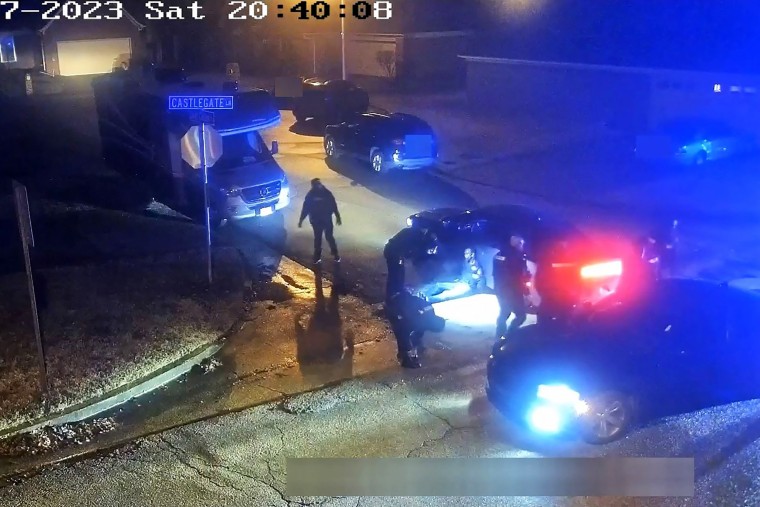
Video footage of the Jan. 7 encounter with Nichols showed Scorpion unit members pummeling the unarmed man — with their fists, feet and a baton — as he begged them to let him go home.
“Mom!” Nichols screamed at one point.
Chapman, the retired police director, said that special street crime units can easily go off the rails in the absence of seasoned officers and veteran commanders. The five officers charged in Nichols’ death had all been hired in the previous six years; two joined the force in 2020.
“I still can’t understand what they were thinking to have people on that unit that were as junior and as inexperienced as they were,” he said.
Now, some Memphis residents and clergy believe praise for Davis’ response to the killing, including the swift termination of the officers, should be tempered.
“It’s like starting a fire and then being celebrated for trying to put it out,” said the Rev. Earle Fisher, senior pastor of Abyssinian Baptist Church in Memphis and longtime criminal justice reform activist.
Smiley, the city councilman, said Davis has limited time to bring down crime in Memphis and restore public trust in the police department.
City residents will select a new mayor in October, Smiley noted, and that person will get to choose whom they want to run the police department.
“The clock is ticking,” he said.
Source: | This article originally belongs to Nbcnews.com
